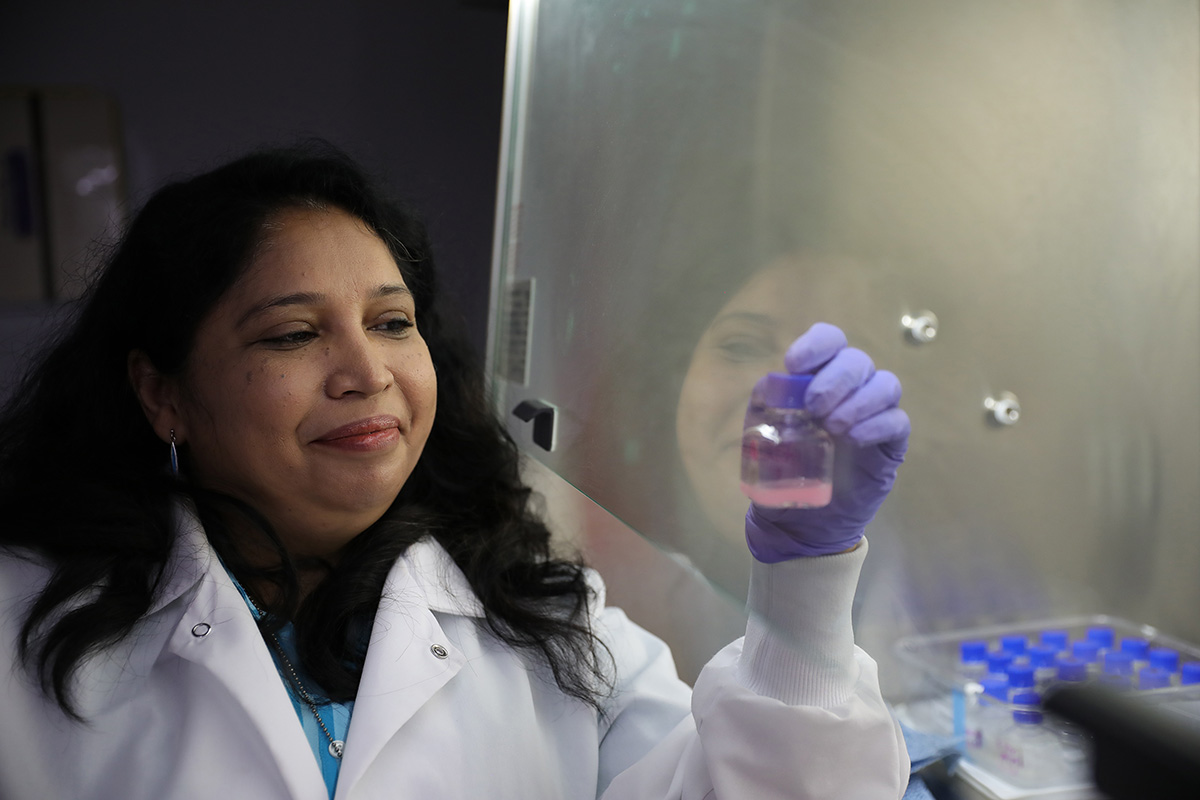
UTEP Researcher Fights Tuberculosis with $1.5M NIH Grant
Last Updated on October 27, 2021 at 4:00 PM
Originally published October 27, 2021
By MC Staff
UTEP Marketing and Communications
Sangeeta Tiwari, Ph.D., assistant professor of biological sciences at The University of Texas at El Paso, will help improve the efficacy of treatments against tuberculosis, one of the world’s most dangerous infectious diseases, through a $1.5 million grant from the National Institutes of Health (NIH).

Tuberculosis (TB), a disease caused by a pathogen known as Mycobacterium tuberculosis (Mtb), remains a significant global health issue despite advances made to combat the disease. The emergence of drug-resistant strains of Mtb and long, tedious treatment therapies make TB one of the world’s deadliest diseases. In 2019, 1.4 million people died from TB, according to the World Health Organization.
Tiwari will seek to reduce the treatment time for TB by identifying new molecular drug targets of Mtb. Such discoveries could lead to the development of unique therapeutic strategies to fight drug-resistant Mtb, including highly drug-resistant TB (XDR TB).
Due to the slow-growing nature of Mtb, the treatment requires many months to eradicate the active organism. If the patient is noncompliant or has other complications, drug-resistant strains can develop and spread to others. Thus, it is critically important to develop new Mtb drugs that effectively and efficiently kill this organism, said Robert A. Kirken, dean of UTEP’s College of Science.
“Dr. Tiwari’s recent discovery suggests a new molecular pathway to target,” Kirken said. “This is exciting since few new drugs against TB have done so over the past several decades.”
The NIH grant will enable Tiwari and her team, including undergraduate and graduate students, to develop new ideas and expand on her previous findings. Tiwari has identified that subpopulations of Mtb — known as “persisters” — are resistant to first-line TB drugs such as isoniazid (INH). Her discovery of a new pathway to attack the disease is the first step in developing drugs that can eradicate drug-resistant MDR TB and shorten treatment therapies.
The next phase of Tiwari’s research aims to identify novel compounds that can target TB enzymes involved in this new arginine biosynthesis pathway. The team also will study additional enzymes in the arginine biosynthesis pathway to increase the drug target space.
“We will be screening for compounds that target enzymes in the arginine biosynthesis pathway of TB bacteria and if we find them, this can lead to shortened TB chemotherapies, result in getting rid of the emergence of the drug-resistant strains of the bacteria and find a treatment for XDR TB,” Tiwari said.
About The University of Texas at El Paso
The University of Texas at El Paso is America’s leading Hispanic-serving university. Located at the westernmost tip of Texas, where three states and two countries converge along the Rio Grande, 94% of our nearly 25,000 students are minorities, and half are the first in their families to go to college. UTEP offers 168 bachelor’s, master’s and doctoral degree programs at the only open-access, top tier research university in America.
